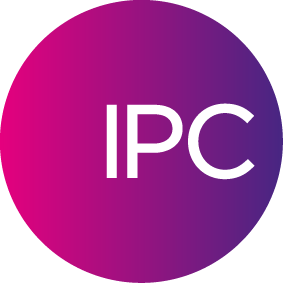NEW YORK and LONDON – June 8, 2017 – IPC, a leading global provider of secure, compliant communications and networking solutions for the financial markets community, today announced that it will sponsor FISD conferences to be held in New York and London on Thursday, June 15 and Thursday, June 22 respectively. IPC’s team of subject matter experts will attend both conferences and meet with influential executives from sell-side firms, investment managers, liquidity venues, market data vendors and technology providers. Topics expected to be discussed include Big Data, APIs, market data risk management, and analytical tools available in the financial information industry.
The Financial Information Services Association of the Software & Information Industry Association provides a neutral business forum for exchanges, market data vendors, specialist data providers, brokerage firms, investment managers and banks to help address and resolve business and technical issues related to the distribution, management, administration and use of market data within the financial sector.
The IPC Financial Markets Network portfolio includes data connectivity solutions consisting of the Connexus Extranet, Connexus Ethernet and Connexus WAN as well as voice solutions consisting of Connexus Voice and Trader Voice services. IPC’s Financial Markets Network interconnects global financial centers and allows access to more than 6,000 market participant locations across 700 cities in more than 60 countries. Market participants interested in speaking to IPC’s subject matter experts can schedule a meeting with us at the conference or email us. We also encourage you to follow us on Twitter@IPC_Systems_Inc or LinkedIn.
About IPC
IPC is a technology and service leader that powers financial markets globally. We help clients anticipate change and solve problems, setting the standard with industry expertise, exceptional service and comprehensive technology. With customers first and always, we collaborate with each to understand their individual needs to help make them secure, productive and compliant within our connected community. Through service excellence, long-developed expertise and a focus on innovation and community, we provide agile and efficient ways for our customers to accelerate their ability to adapt to the ever–changing requirements for advanced networks, compliance and collaboration with all counterparties across the financial markets. www.ipc.com
Certain statements contained in this press release may be forward-looking statements. These statements may be identified by the use of forward-looking terminology such as “anticipate,” “believe,” “continue,” “could,” “estimate,” “expect,” “intend,” “may,” “might,” “plan,” “potential,” “predict,” “should” or “will” or similar terminology. Any forward-looking statements are based on current expectations, assumptions, estimates and projections. Such forward looking statements involve known and unknown risks and uncertainties, many of which are beyond our control. Actual results may differ materially from any future results expressed or implied by these forward-looking statements.



